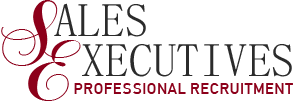Interview Preparation Guide
When one of the world leading fortune 100 companies wrote the book on selling they said there are five key components to every sale:
- Warm the customer up and establish rapport
- Needs analysis assessment (find out what the customer needs)
- Presentation (based on the customer’s needs and requirements)
- Discover any objections or concerns (quell them)
- Close
All Five Components Are There with The Interview as Well:
If you apply these five simple steps during the interview process you will greatly increase your chances of securing the next step to your new career. To follow you will find the information necessary to do so but most importantly I want to emphasize the value of the needs analysis assessment that must take place at the beginning of your interview.
When I first mention this to most candidates they are stumped by the initial analysis and wonder how they can possibly do that. It’s quite simple but you must earn the right to do so. After the niceties have been established you need to get the jump on the interviewer and state that you have done a lot of research on the company, reviewed the job description, studied their website, looked at their competition, if applicable talked to some of their Sales Reps, and talked to your recruiter, but most importantly you want to get an understanding from their point of view what they are looking for in a candidate. Then curtail the interview and the presentation of yourself based upon their needs and wants.
Don’t Forget the Warmup:
Be aggressively friendly when you first meet them. Employers tell me they can tell in the first 5 minutes if they want to hire someone. Smile, (Even if it is a phone conversation) there is a difference between being friendly and being warm. See what they have hanging on their walls and it will give you a good idea of what they are interested in. Warmth sells.
Listening Skills:
Before the interview remind yourself that you have 2 ears and 1 mouth for a good reason. (Listen twice as much as you talk) When you ask the interviewer a question discipline yourself to listen to the full answer before asking another question. When asked a question only answer the question they ask you and nothing more. Look at the person speaking to you. Don’t interrupt. Don’t change the subject.
Behavioral Pattern:
Companies who hire sales people are looking for that behavioral pattern or predictability of urgency and follow up. You must stick to the hiring authority like glue or gum on the bottom of your shoe. After every conversation or interview they must get a summary thank you note that same day. If I am a manager and my livelihood depended on it, I would want to see how hard a candidate chased me. “In Many cases desire trumps all”.
Overall Theme:
Before you get an offer know that you are the seller and they are the buyer. You always must answer the question, “Why should they hire you?” What is in it for them?” What are the benefits of hiring you? Once you get an offer the rolls reverse, you become the buyer and they become the seller.
Questions to Prepare for The Interview:
Ask a question then be quiet and listen to the answer. (LISTEN)
Don’t ask about money or benefits.
What type of experience are you looking for?
What type of personality are you looking for?
When you look at your top sales people, what do they have in common? What makes some good and some bad?
What type of past sales success are you looking for?
Company: (Finding out what the job is all about)
People love to tell their story. Tell them you have looked their profile up on LinkedIn and find their background most intriguing. (Providing you can find them and most are on LinkedIn) If you cannot find them on LinkedIn ask the interviewer what his background is, how long he has been with this company and what has been his experience with this firm?
Describe to me the corporate culture and atmosphere.
Describe to me the initial and ongoing training.
Who will be my direct manager? What is his management style?
How many sales reps do you have and what is there average length of service?
The Position:
Why is the position open? Who had this territory before and what happened to this person? How long was he or she with your firm? What percentage of your sales reps hit quota each year?
What has been the history of this territory over the last 2 years? Why or why not has it been growing and what is the goal for the next year?
Describe a typical day or typical week in the life of one of your sales people.
If you looked at a 45-hour work week, what percentage of my time would I be doing what activities? For instance, is it 80% cold calling?
The Product:
What is your competitive edge over your competition?
Better price?
Better service?
Better reputation?
What is unique about your product or service?
Describe the best client. Size? Revenue?
Describe to me your competition and why a business would possibly choose them over your company.
What is the typical sales cycle / length of it?
How much is an average sale?
How many new sales are made per year, per rep?
Would appointments come from my own prospecting efforts?
What resources are available to me?
What internal resources are available during the sales process and implementation?
Selling Yourself:
What can I bring to the table?
Answering the old “Tell me about your strengths and weaknesses? Which is the same thing as “tell me about yourself” Which is the same thing as “Why should I hire you?”
I am money motivated because… Come up with a reason.
I am extremely competitive. Give an example.
I am committed to daily behavior. (The metrics you have established that have proven to be a formula for success, plan your work and work your plan)
I have a process of, what I do, how I do it and what I get in return.
Committed to 50 cold calls a day (you don’t have to like cold calls you just have to make them)
Committed to always planning my calls the night before
Committed to 5 to 7 face to face appointments a week
I am a proven Sales producer – (Be specific by year, like the example below)
Selected Accomplishments:
YTD Sales Rank #3 out of 7 currently sold $500,000 on a quota of $500,000 for 100% of quota
FY 2014: Sales Rank #1 out of 7; Quota $1.4M; Actual Sales $2M for 142% of quota
FY 2013: Sales Rank #1 out of 7; Quota $1.2M; Actual Sales $1.68M for 140% of quota
FY 2012: Sales Rank #1 out of 9; Quota $1M; Actual Sales $1.79M for 179 % of quota
FY 2011: Sales Rank #2 out of 9; Quota $ 1M; Actual Sales $1.63M for 163% of quota
List any other Quantified Accomplishments in descending order under the same fiscal year: I.E. FY 2011: Ranked #1 out of 9 for the Quarter; Quota $50,000; Actual Sales $100,000 for 200% if quota – etc.
Work Ethic:
Substantiate the claim that you work hard
Raised in a blue-collar family, delivered newspapers, caddied at a golf course, and paid 100% of my college bill by washing dishes in the cafeteria. First one in and last to leave every day.
Attitude:
I will do whatever it takes. When worms are scarce, what does a hen do? Does she stop scratching? She does not! She scratches all the harder!!
I believe in written goals. I know you hit 95% of all goals you write down.
I have great focus and my only focus during the day is work. No personal business.
I have no self-pity, I make no excuses. I know there is no free lunch, and no one is going to hand you something for nothing.
Closing the Interview (Simple close)
Thank them for their time
Communicate how you feel about the job and why you feel that you would be a good fit for the position based on what their needs and requirements are. Mirror what they told you they want.
Closing question: It seems to me we have a good fit here, what do you think?
ASK: DO YOU HAVE ANY CONCERNS ABOUT ME, MY QUALIFICATIONS AND ABILITY TO BE SUCCESSFUL AT THIS POSITION? If they express any concerns, quell that concern immediately and ask if that helps quell their concern. Continue to handle their objections or concerns. Then ask again and respond until all their concerns are quelled.
Ask:
Have I earned your approval to move forward in the process?
Where do we proceed from here?
What is the next step?
Describe to me your timeline?
If you don’t close for the next step in the process you will not move forward.
Tougher Closing Questions:
If the decision was up to you, would you hire me today?
How many candidates have you seen and where do I rank amongst the other two candidates?
Would you place me at number one? Why or why not?
If everyone is equal, what would make you pick one candidate over another?
Do your initial feelings about me tell you anything negative that would prevent you from moving forward with me?
When will I hear from you?
If I do not hear from you at 9 AM is it ok to call you at 10 AM?
Reminder:
Behavior pattern of same day follow up with an email. We want to show them your sense of urgency. Send your recruiter a copy of your thank you / follow up email before sending so they can review for content, grammatical and spelling errors. (This is very important) It is amazing how a little typo can go unnoticed by you and make the difference between you moving forward in the process or not. Candidates have been knocked out of the process because of a poorly written thank you letter.
Very Important:
Contact your recruiter immediately following the interview for a debriefing.
Remember to follow the advice of your recruiter. They do this for a living and they know what works and what does not.
Good Luck!
Download pdf

